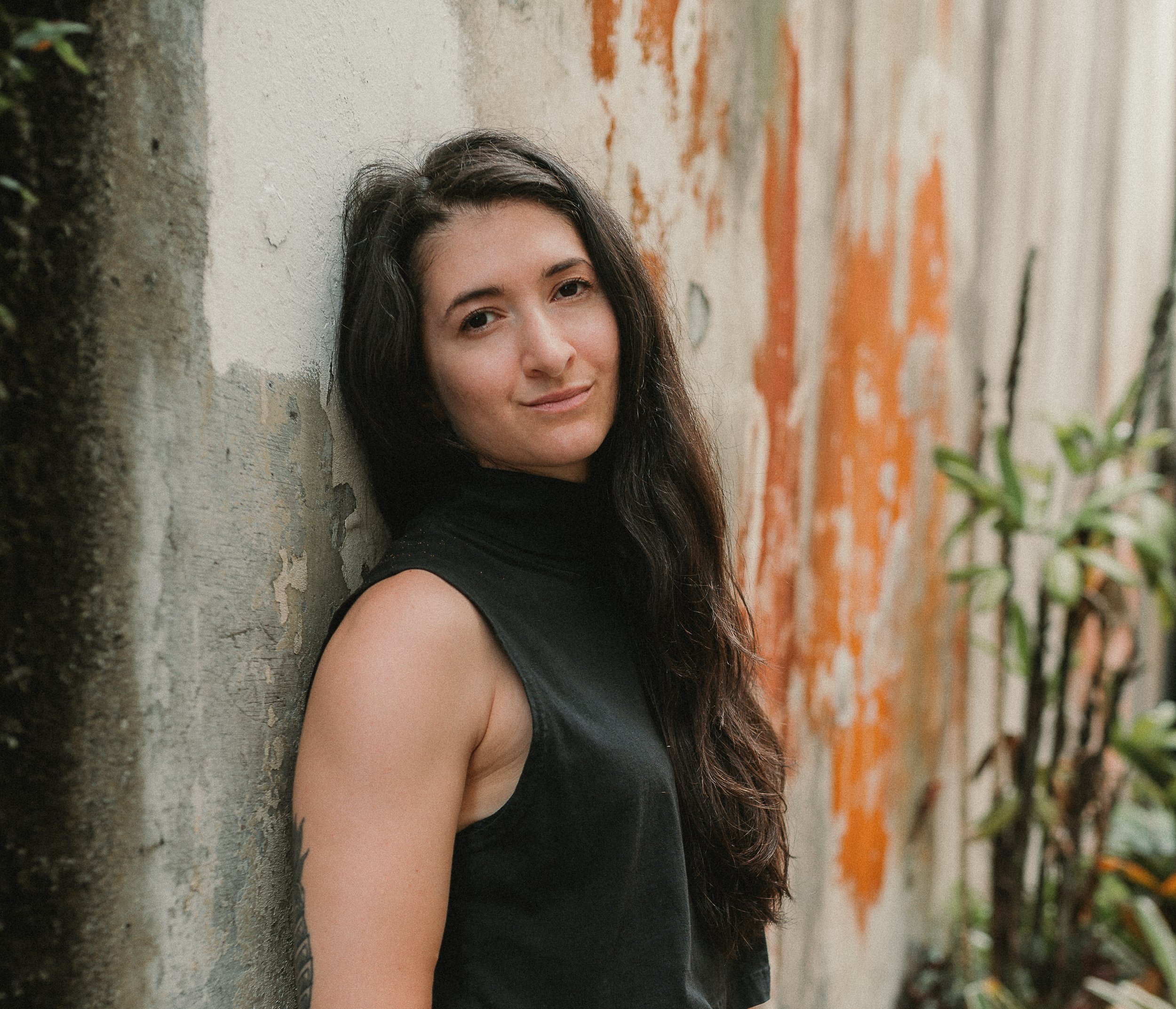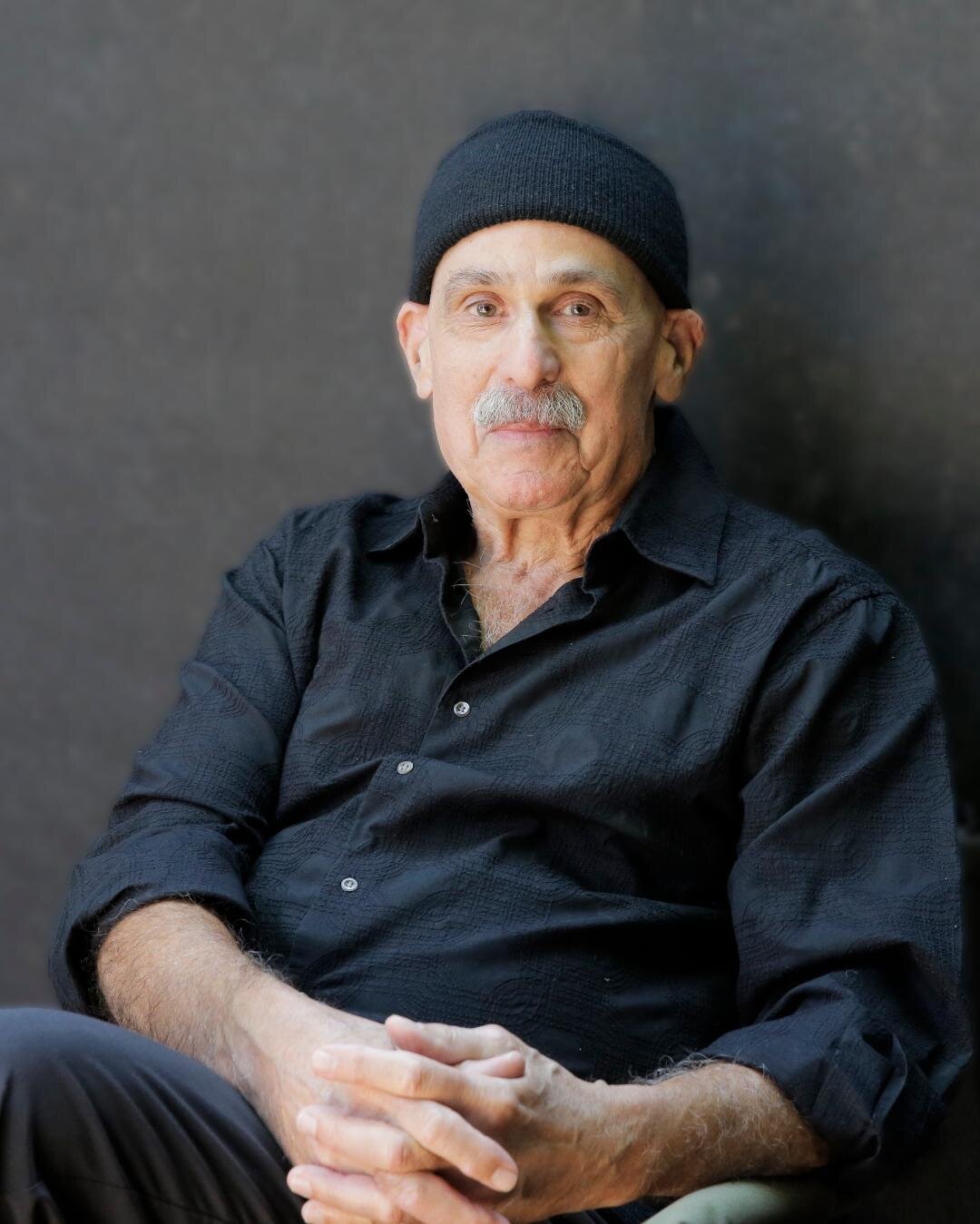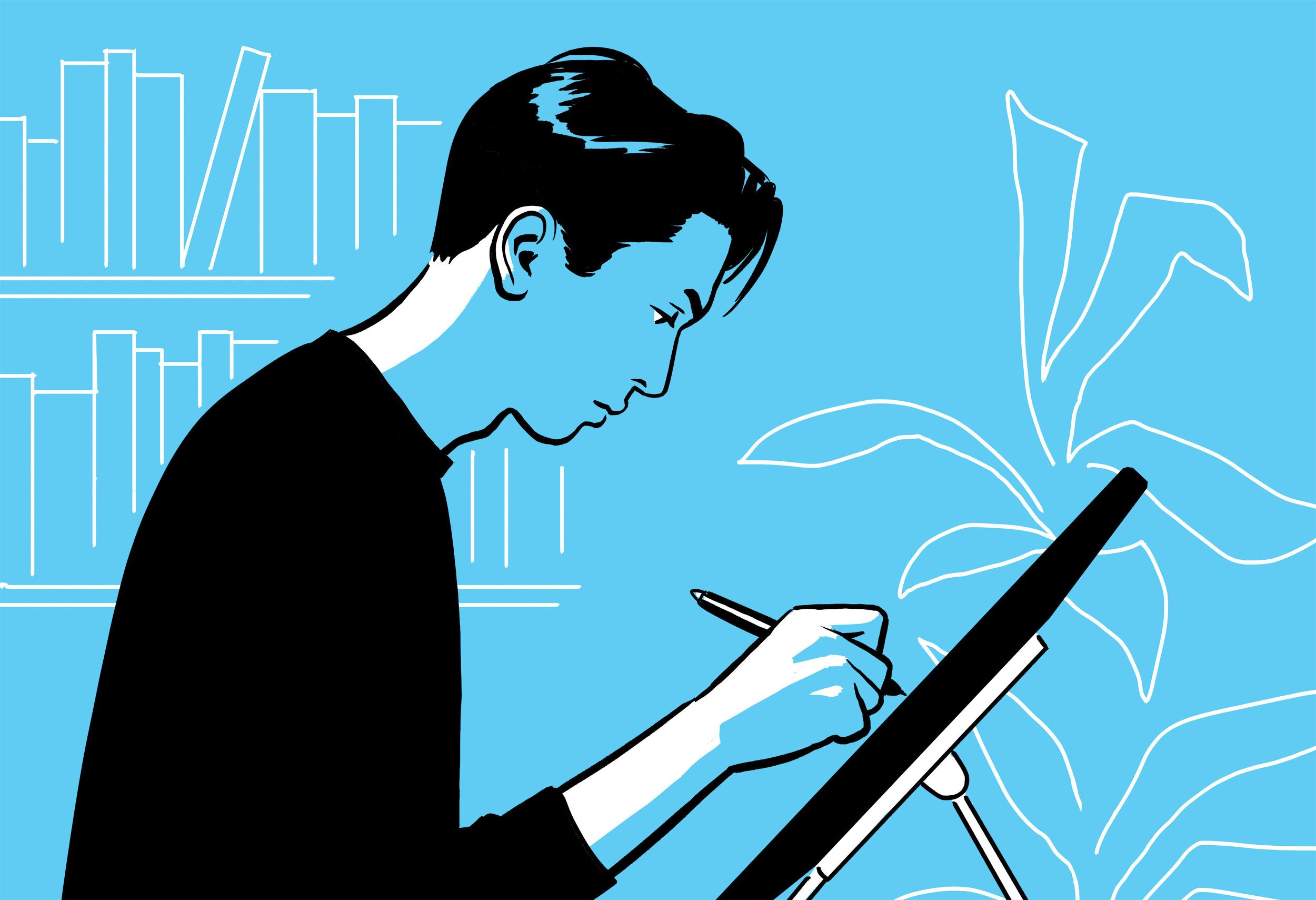Women Just Wanna Have Lives

The hot magma chamber of creativity bubbling up on the slopes of Mauna Kea has given us many rich and enchanting voices.
Recent novels from Jasmin ‘Iolani Hakes and Kaui Strong Washburn arrived on a solid foundation laid by Juliet Kono, Kiana Davenport and Mark Panek. Now Zoë Eisenberg enters the mix with a significant debut novel, Significant Others.
It’s a story of a pod of no-longer-young, not quite settled thirtysomething friends—two women and a man, who’s the twin of one of the women—living under the same Hilo roof. Working the cringeworthy jobs available in a tourist-industry state—or helping to sell off paradise to newcomers—they barely navigate an unconventional ‘ohana riven by passive-aggressive energy. Can anything change their lives before they stale out, dissolve in alcohol and/or meaningless hookups?
Coming at a time when throuple and polyamory have entered the conversational jetstream as fodder for gossip, Significant Others takes a look at a reality many young women, and more and more of us in Hawai‘i, must face: a world of closer, tighter living arrangements based on financial necessity, inertia, old but frayed family ties or friendships, but also on a desire to create a new kind of family.
This is a book of precise observations and memorable language in service of an actual philosophical view of the way we live and love now, as opposed to the often shoddily constructed fictions foisted on the marketplace.
But Eisenberg’s own story is equally compelling. As the following conversation with Aaron Kandell reveals, she’s a power source as a writer, filmmaker and circus producer. Her Aerial Arts Studio in downtown Hilo has given the area a creative hub and resulted in work with large clients including Benefit Cosmetics, Red Bull, and Coors. Her debut feature film just won the Grand Jury Narrative Feature Prize at Slamdance this January.
Her friend and interviewer, Aaron Kandell, is half of a screenwriter team with his twin brother Jordan on Disney’s Moana, as well as the indie Adrift.
Together, Zoë and Aaron give us a memorable and unfettered discussion that feels a bit like an aerial circus itself: a thing impossible to take your eyes off of, even as you want to linger over the lines last spoken. —D.W.
An Interview with Aaron Kandell and Zoë Eisenberg
AARON KANDELL
You’ve written, directed, and produced numerous Hawai‘i based short films, short stories, and a feature film. This is your debut novel. What has been the journey for you, the inspiration for this particular story?
ZOË EISENBERG
The genesis happened in the summer of 2018, during the volcanic eruption. I was doing a lot of processing about some of the relationships that I’d had with women through the entirety of my 20s and into my early 30s. I have a tendency to create really intense friendships that are deeply committed and intentional and feel quite romantic, and then sometimes expire the way a traditional romantic relationship might. And because the relationship was platonic, I would have no real way to mourn them because I didn't have a model for what I was going through. When originating this story I was really thinking about, what if all of these relationships had been one centralized decades-spanning relationship? What would the fallout of that look like?
AARON
You're an accomplished writer and filmmaker, and there exist compelling thematics that run parallel in all your work. Primarily an exploration of friendships that are perhaps unorthodox narratively speaking, yet you make them exceedingly relatable and naturalistic to the complicated, intwined, even contradictory dynamics inherent in everyday interactions.
“I tend to be interested in women who are maybe exercising control through secrecy or dishonesty or just behaving in ways that are kind of shitty in order to get their own needs met. … I’m attracted to exploring people making these unmoralistic choices that affect other people in ways that are frequently self-destructive.”
ZOË
Well, because they are normal and natural to my experience, even if these are portrayals of relationships I hadn’t really seen before. The first chapter starts with these two women in bed, and you don't really know yet what their relationship is. When I talk to other women, they're all like, yes, yes, that is such an unspoken yet common experience: two intimate friends who are so close they might sleep together almost like lovers, except there’s nothing sexual going on. And I just haven't seen enough of it. And since I've written it, I've actually read quite a few other stories that have similar friendships, which is great. But at the time, I felt like I was by myself.
AARON
It’s a tricky balance you’ve managed to capture in a really grounded and complex way. It feels like you’ve uncovered a stone and you're seeing there's a whole other world of life existing beneath, that's always been there, of course. Yet it feels strangely revelatory and bizarre that it isn't often as richly explored.
ZOË
I selfishly wrote it for myself, to fill a void I felt was missing. But I also hope that it gives voice and feeling to this alternative kind of romance. We are all inherent narcissists, we all wanna see reflections of ourselves.
AARON
How did you come up with the structure of your book, which is alternating point of view where every chapter flips between Jess and Ren. And you're very much in the first person perspective of each of them. And they are very different people and women. And they have very different views of life, personalities, degrees of warmth, anxiety, doubts, convictions. And they see things, often the same moment or events within the book, through very different lenses. How did that structure inform how you built the narrative engine that propels the story?
ZOË
I knew I wanted to explore two women experiencing the same situation in wildly different ways. And so for me, the most obvious way to do that was to toggle perspectives. That interests me… like how you and I are experiencing this interview in wildly different ways, right?
AARON
Well, hopefully a good interviewer gets into the head of the interviewee and becomes one with them… so I’d argue we're in fact having the exact same experience right now.
ZOË
And then the reader of the interview should feel equally like they've merged with both of us.
AARON
In your novel, as well as in your short stories and your films, you seem at your most comfortable as an artist residing in the uncomfortable. And you’re often examining characters who make unorthodox or even outright compromising choices for themselves. What is it about that, that fascinates you?
ZOË
I have noticed the pattern that I tend to be interested in women who are maybe exercising control through secrecy or dishonesty or just behaving in ways that are kind of shitty in order to get their own needs met. And I don't know, I think that's very human. I’m attracted to exploring people making these unmoralistic choices that affect other people in ways that are frequently self-destructive.
AARON
Yeah, I mean, I want to dig a little deeper on that because, you know, within that, there's an interesting dichotomy between... a very kind of rich, lived-in interiority to your portrayal of your characters, who seem to be very, you know, self-aware and forward-driven in their actions and choices, and at the same time, not necessarily super self-reflective about the consequences of the choices that they make. They just are sort of hard-charging into them and through them. That’s a very tricky challenge to pull off and you do it wonderfully, but it's a tightrope walk. How do you find that balance?
ZOË
I don't look down? I don't know. For me it is happening intuitively. I do create really oppressive outlines, and I find a lot of the story while I'm architecturally designing it, but then leave myself flexible for discovery. Because my first ideas are not always the best. Actually, they're never the best.
AARON
“My advice is to just keep doing the stuff that you’re excited about. ONLY do the stuff that you’re excited about. Run stupidly forward.”
Equally central in your work, whether in your feature film debuting at Slamdance this year to your forthcoming collection of short stories, are all very grounded in place: Hawaii as a character. And not just Hawaii as a concept or as a collective island chain, but focused on the very distinct culture of very specific neighborhoods on very unique side of one very specific island. So what is it that drew you to this setting personally and that makes you artistically keep depicting Kalapana and Hilo in all of your work?
ZOË
I'm an observationalist. My imagination is perhaps not as great as one might think… so I'm writing the people that I see where I live. It's beautiful and peaceful and I get a lot of rejuvenation sure, but more, I’ve found on the East (side of Hawai’i island) this common system of beliefs that unites everyone; this dual acceptance of impermanence and reverence for the land, because we have these intense volcanic eruptions. I've lived through two pretty big ones since I've been here, and every time they happen, we lose about 10% of our population. But then the people that dig their heels in and still wanna stay… it's a very specific type of personality.
AARON
How would you describe that personality?
ZOË
It’s just an ease with the impermanence; everything's on fire and—instead of panic and bail— let’s really look at it…because it’s creation and destruction at the same time. For the people who were born here or who are deeply committed to living here, this is just normal everyday reality. And we're attached to place but not house. Region but not boundary. We’re okay with things shifting and changing, or at least, we’re trying to be okay with it.
AARON
You see those personalities reflected in your characters. Who run as deep and as hot as the lava flowing beneath their feet. Yet there are cracks and fissures and steaming vents of external and internal obstacles that threaten this seemingly peaceful cohabitation within the lives that they think they've carved for themselves… but that are always, at every moment, at risk of throwing everything they know about themselves into instability and unrest.
ZOË
Yeah, I would say that there is a common thread of people looking for control in a very uncontrollable situation, which is just sort of life in general, right? We're always trying to create these schedules and these, I don't know, to-do lists and these goals and all of these tiny measures that allow us to control our reality around us. When actually we really we can't really control anything. That's sort of terrifying or exciting… depending on the type of person you are. And this place I choose to live and write about serves as a two-way mirror between those two.
AARON
You also don't shy away from controversy in your work whether it it's in the kinds of relationships you portray or the choices your characters make, or even controversies swirling around the setting itself. Including a background motif involving the escalating Native Hawaiian protests on Mauna Kea.
ZOË
I'm interested in the way that Jess has a lot of opinions about what's going on in the mountain. But she takes no action. She talks about things theoretically and does absolutely nothing. And there is this dichotomy between the kind of people who are protecting something that's really important to them, right? Their land, their home. And then you have someone like Jess, who thinks that she's protecting the things that are important to her. But in actuality, she's being quite destructive. So there’s a mirror of the interpersonal dynamics that Jess and Ren are struggling with and what that radiates out to on a larger, political scale.
AARON
Microcosm as macrocosm.
ZOË
Yes, thank you. Synthesis: the gift of a screenwriter.
AARON
You are the most voracious reader of probably anybody I've ever met. How does your reading interact with your writing?
ZOË
I know a lot of writers who won't read while they're writing because they don't want to be impacted by voice or story or other people's decisions. I'm not that way at all. I'm constantly inspired by other people's voice and decisions. So I’m reading all the time and I'm reading very different things all the time. I read like I eat. Eagerly, three times a day.
AARON
And do you choose based on voice or style similar to your own; does what you read impact these things?
ZOË
I don't think about my own style ever at all. I think the minute I think about my own style, the style will evaporate. I mean it's the same with how I get dressed. I don't choose my clothing by asking, what vibe do I wanna put in the world today? I just pick something that speaks to me that I feel good in.
AARON
When it comes to the process of writing how do you combat doubt or self-criticism?
ZOË
All of that stuff certainly comes into play, often crushingly, but luckily not until I'm done. I really enjoy the creation process. The discovery. A turn of phrase or a really incisive way of dissecting a microscope emotion.
AARON
We haven't talked about motherhood. In “Significant Others” the catalyst that thrusts your characters into choices and conflicts is a pregnancy.
ZOË
I didn't want this to be a story about figuring out your 20s, because we have had a lot of those. But we've had less stories about what it looks like to be in your 30s when motherhood is a huge topic of conversation, at least among all of my friends: whether or not you want to be a mother; what that means for you, for your family, for your place in the world. So that ended up being what I started to explore. And the funny thing is that when I started the book I was definitely one of those women who was clear, I'm not gonna have kids. I was very much the Jess. And now I'm publishing the book in my mid 30s and I'm dealing with all of the things both characters are dealing with in the story.
AARON
Do you think the writing of these two very different characters and their shifting feelings help inform or catalyze interconnectivity within your personal narrative… or is the novel an organic byproduct of entering a specific season and stage of life?
ZOË
I mean it can't possibly be separate, but I don't know which came first. I know I was definitely interviewing a lot of my friends who were going through the process of deciding whether or not to have kids, and what that meant for their relationships. So I was exploring a lot of the thoughts and feelings that they're having, reading a lot of work about it as well. So I was certainly informing my own future opinion, and of course I contain bits of both Jess and Ren. They're two halves of my brain having a conversation. Early on in the story, Jess talks about not wanting children, but when she thinks about what life looks like for her when she's older, she always sees family. And that's how I feel about it, where I would like to be around a dinner table with my family that I've created myself.
This is a book about genesis. A book about family and friendship, yes, but also a book about creating and figuring out how to sustain a life.
AARON
What advice would you give to aspiring artists… or evolving artists like ourselves?
ZOË
Can't stop, won't stop. I started this book six years ago. It certainly did not take me six years to write, but it took six years to get published. And that's just the nature. I mean, we can talk about control again… but we all know there is none. It’s an illusion. Or more accurately a delusion. My advice is to just keep doing the stuff that you're excited about. ONLY do the stuff that you're excited about. Run stupidly forward.
Aaron Kandell works with his identical twin brother Jordan as screenwriters and producers best known for their work on Disney Animation’s Moana and the 2018 feature Adrift.
The Kbros have developed a number of notable projects for legendary directors, including: Chris Columbus, Peter Farrelly, Jon M. Chu, Destin Daniel Cretton, Robert Zemeckis, and Clint Eastwood.
Sons of ‘Iolani and graduates of USC, the twins are born, raised, and still reside in Hawai‘i.
A fiction writer, filmmaker and circus producer, Zoë Eisenberg creates stories and spaces in and about her home on Hawai’i island. Her work has been supported by Tribeca Studios and Netflix, and has played on PBS, Hawaiian Airlines, and theatrically across Hawai‘i. Her solo debut feature film Chaperone premiered in the Slamdance 2024 film festival, and from 2018 through 2023 she founded and served as Executive Director of the Made in Hawai‘i film festival.
Zoë is also the co-founder of Aerial Arts Hawai‘i, an aerial circus performing arts company and training space in downtown Hilo, through which she has produced experiential circus concepts for clients like Benefit Cosmetics, Red Bull, and Coors.
Banner image courtesy of Sigmund Z.







